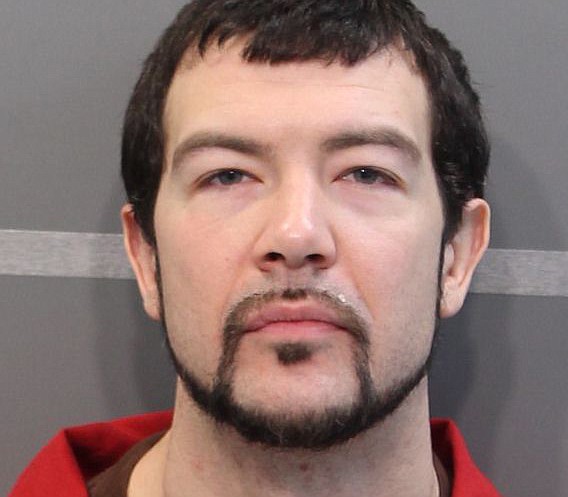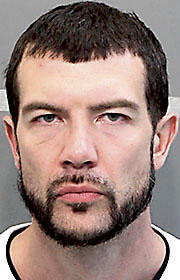A 31-year-old man who was scheduled for trial Tuesday in Hamilton County Criminal Court instead will face a jury in June.
Prosecutors asked for more time in the Chad Massengale case after their lead witness, Detective Ryan Wilkey of the Soddy-Daisy Police Department, took a medical leave. Assistant District Attorney Cameron Williams said he also needed to coordinate schedules with a few other Hamilton County Sheriff's Office deputies.
Authorities believe Massengale participated with Dekota Burchard and Roy Henderson in the 2015 beating and stabbing of 51-year-old Tony Rector. Police found Rector's body at the Soddy Presbyterian Cemetery on Dec. 29 and used several interviews to trace the beating back to a house on Dallas Hollow Road. All three men face first-degree murder charges and life in prison. Only Massengale is scheduled for trial.
Though all three men were charged together, prosecutors successfully severed Massengale's case from those of Burchard and Henderson in March. That move means prosecutors could call both men to the stand at Massengale's trial or play a statement that implicates him.
Such statements have already been a crucial topic in Massengale's proceedings.
Prosecutors say Massengale confessed to the crime when police picked him up in January 2016 and interviewed him in a holding room. But defense attorney Steven Moore countered that detective Wilkey never asked Massengale whether he would sign a Miranda rights waiver, violated his constitutional right to remain silent, and took advantage of a man who was seemingly intoxicated. As a result, jurors shouldn't be able to hear that evidence, Moore said.
Criminal Court Judge Don Poole sided against Moore in an order in March, but conceded that Wilkey violated protocol by reading Massengale his rights instead of asking him to sign a waiver.
"The defendant did not sign the waiver but said that he understood his rights and agreed to waive them," Poole wrote in his order. "The detective [Wilkey] misled the defendant that there was forensic evidence against him."
Quoting case law, however, Poole said a defendant's silence doesn't inherently prevent "an implicit waiver of rights."
"Even if the defendant did not acknowledge comprehension of his rights by nodding his head in response to the officer's questions, from the totality of the circumstances, the court finds there was an implicit waiver of rights," Poole wrote.
Poole weighed testimony that he heard during an earlier hearing in February in which a woman who'd previously dated Massengale said he had gotten high before the police picked him up for questioning. The woman added Massengale had drugs on his person that police never found. And Poole noted that authorities recovered a syringe from Massengale.
Still, Poole wrote, Detective Wilkey said Massengale did not seem impaired, which raised the question: Did the 31-year-old understand the process enough to know he was waiving his right to remain silent unless he said otherwise?
Yes, Poole said. He pointed to the prosecution's argument that Massengale had been arrested 23 times locally, spent time in a Georgia prison and understood how the justice system worked.
"Although the detective did not try to clarify the defendant's comprehension of his rights, it is reasonable to presume from the defendant's extensive criminal history that he was very familiar with the rights," he concluded. "It is also evident from his early reference to self-incrimination and his later references to bond, a jury and punishment that he was very familiar with his rights."
Contact staff writer Zack Peterson at zpeterson@timesfreepress.com or 423-757-6347. Follow him on Twitter @zackpeterson918.

